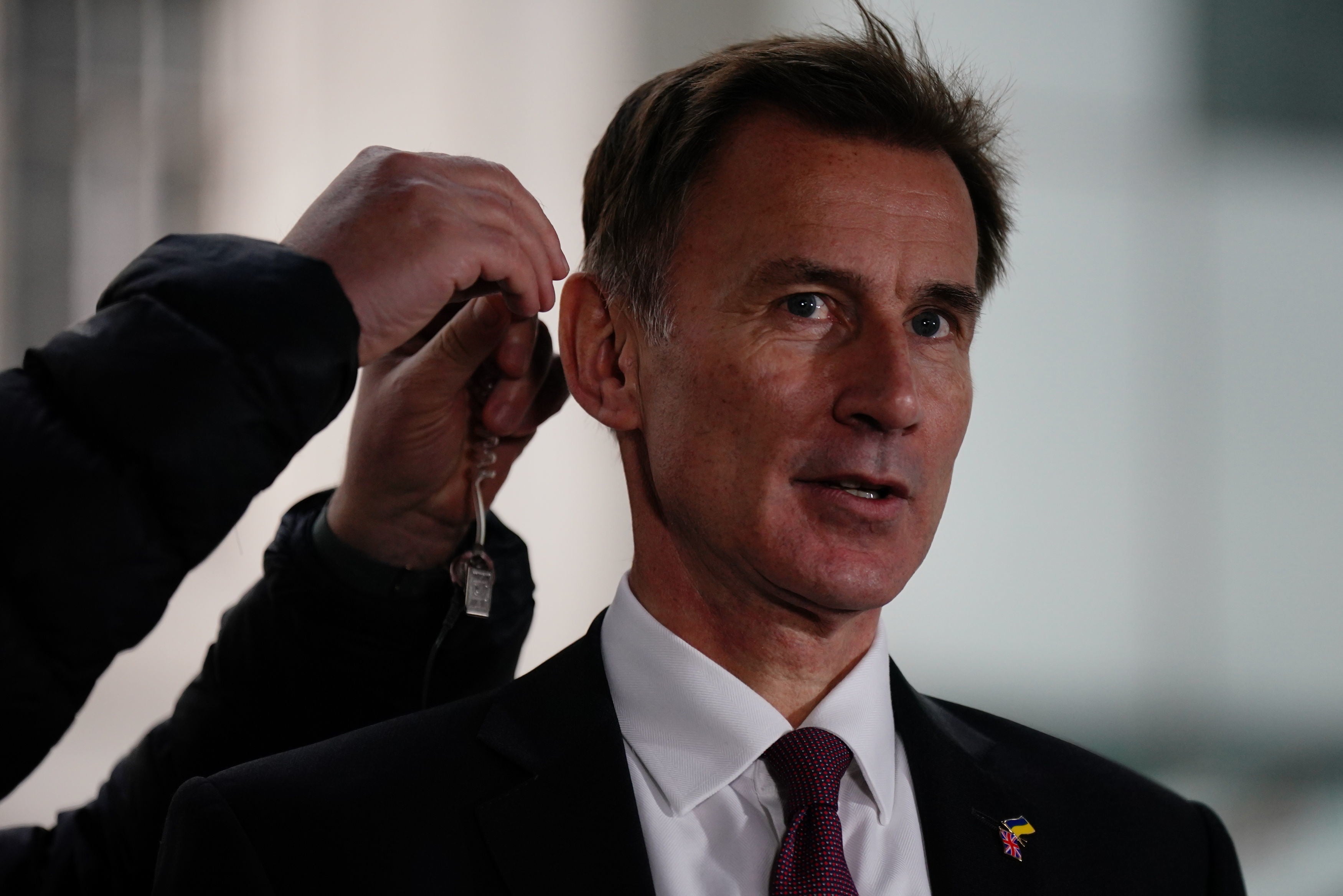Waiting for Hunt’s social care cap is like waiting for Godot
Hunt has postponed the plan for social care for at least two years and there are fears it will never be implemented, writes Andrew Grice


After his spell as the UK’s longest-serving health secretary, Jeremy Hunt admitted he had “failed” by not bringing in a 10-year plan for social care. When Boris Johnson finally announced an £86,000 cap on people’s lifetime care bills last December, Hunt argued it did not go far enough.
Yet now as chancellor, Hunt has postponed the move for at least two years and there are fears it will never be implemented. He hid behind council leaders who said they were not ready to implement the cap next October – the same excuse the 2010-15 coalition used after legislating for the ceiling.
Waiting for the cap is like waiting for Godot, even though in their 2019 manifesto, the Tories promised that “nobody needing care should be forced to sell their home to pay for it”. The cap was supposed to be only the first step in a wholesale reform of the ailing social care sector. As ever, it is the NHS’s very poor relation.
Andrew Dilnot, the economist who proposed the cap in 2011, said today that a delay of only a few months was justified and that families banking on financial help next October would never receive it. “It seems inhumane,” he said. “It’s a tragedy.”
Hunt admitted his decision was a “source of great regret” to him. He insisted said extra funding for social care in England of up to £2.8bn next year and up to £4.7bn the year after would deliver 200,000 more care packages – “the biggest increase under any government of any colour in history.”
In the chilly financial climate of his autumn statement, it sounded good. While the care sector expressed relief at its latest sticking plaster, there is scepticism about how much of the money is genuinely new and how far it will stretch. For example, it will have to cover the 9.7 per cent rise in the national living wage next April.
There are also questions about fairness. A chunk of the extra cash comes from allowing local authorities responsible for social care to increase council tax by 5 per cent a year without holding a referendum (up from 3 per cent), with 2 per cent of it ring-fenced for care. This will bring in more revenue for councils with higher property values and not take account of care needs in poorer areas. The problems in care are national, as in the NHS.
Hunt is playing a familiar, cynical blame game in which central government hopes councils take the rap for raising their charges – this time, during a cost of living crisis.
The extra money might not be enough to allow care providers to boost wages. There are 165,000 vacancies in the sector (11 per cent of the total, up by 52 per cent in a year). While spending about 15 hours a week visiting close relatives in care homes in recent years, I’ve seen many exhausted, underpaid carers quit.
I remember the woman who swapped her gruelling 12-hour shifts for eight hours taking supermarket phone orders for higher pay. My late mother-in-law’s brilliant favourite carer told me he was “burnt out;” he now does gardening work when he can find it.
The government’s recruitment campaign is half-hearted; it still refuses to accept a direct role, as it does in the NHS, saying this a matter for the sector’s 18,500 employers. The chair of one care provider told me Hunt’s decision on the cap was “a grubby cop-out” and there is “dismay” in the sector about it. His charity is “reluctantly closing services as fast as we decently can” because it cannot afford the high fees for agency staff to cover unfilled posts. “We have raised our rates twice this year, but the big supermarkets have done it three times,” he said.
A poll found that 94 per cent of social services directors in England do not believe there is the funding or workforce to meet the care costs of older and disabled people in their area. Cathie Williams, chief executive of Adass, said: “This is the bleakest autumn survey we have ever had.”
Nor will Hunt’s extra money end the squeeze facing local authorities. Although ministers will doubtless accuse them of crying wolf, the fears are echoed by Tory council leaders. Local authorities bore the brunt of the coalition’s austerity measures and cannot make the same cuts or spend the same reserve funds twice.
To keep up to speed with all the latest opinions and comment sign up to our free weekly Voices Dispatches newsletter by clicking here
This is not about special pleading by one interest group. The social care crisis affects all of us because 13,500 people well enough to leave hospital are currently stuck there, often because of the absence of care. Although Hunt insists the government is addressing this problem, the NHS faces a very difficult winter.
Hunt should have listened to the then chair of the health select committee who said 11 months ago that an extra £7bn a year is needed to “fix” social care. He said: “Failures in social care will continue to put pressure on our overstretched hospitals with patients who cannot be safely discharged exacerbating the winter crisis and thousands of people will not get the care they need because the carers do not exist.”
Who was that? Some bloke called Jeremy Hunt.
Join our commenting forum
Join thought-provoking conversations, follow other Independent readers and see their replies
Comments